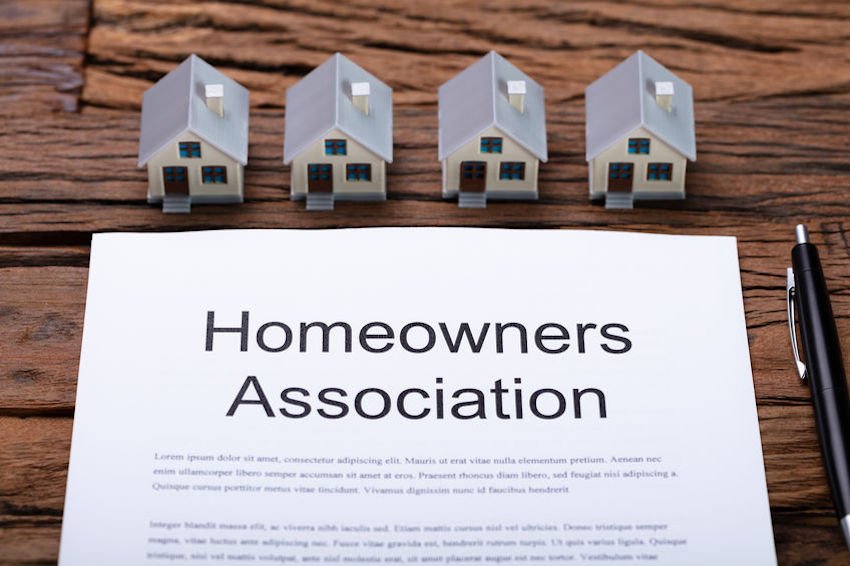The Duty of an HOA in Establishing and Enforcing Area Guidelines for Locals
The duty of a Homeowners Organization (HOA) in enforcing and establishing community guidelines is fundamental to preserving a cohesive and organized household setting - hoa condo. By creating clear rules that regulate facets such as residential property upkeep and area conduct, the HOA not just sets requirements for homeowners yet also fosters a sense of belonging and liability. The execution of these guidelines can provide various challenges, increasing concerns about fairness, interaction, and neighborhood interaction. As we check out these intricacies, it becomes obvious that the effect of an HOA extends far past simple policy enforcement.
Recognizing Homeowners Organizations
Homeowners associations (HOAs) work as regulating bodies for domestic communities, playing an essential role in keeping residential property worths and fostering a sense of community. Commonly created by developers, HOAs are composed of house owners within an assigned location that elect a board to look after the organization's activities. The main features of an HOA include applying community regulations, taking care of common locations, and organizing area events.
HOAs operate under a set of controling documents, including agreements, restrictions, and problems (CC&R s), which describe the rights and duties of home owners. These guidelines aim to make certain that residential properties are preserved to a certain criterion, thereby securing the visual appeal and overall value of the neighborhood. Furthermore, HOAs frequently accumulate fees from home owners to money maintenance, landscape design, and other social work.
The existence of an HOA can dramatically influence the living experience within a community (hoa condo). While some citizens appreciate the structured setting and amenities provided, others might discover certain policies limiting. Stabilizing the rate of interests of all home owners is important for an HOA to function successfully, guaranteeing that it offers its intended purpose of improving neighborhood living while appreciating private home owner rights
Developing Neighborhood Guidelines

To start, an HOA ought to carry out studies or convene that enable homeowners to articulate their problems and pointers. This participatory procedure promotes a feeling of possession and boosts compliance. Next, the HOA board must evaluate the feedback to recognize usual styles and priorities that require official incorporation in the guidelines.
It is likewise important to guarantee that the guidelines are clear, concise, and easily recognized. Ambiguities can lead to problems and misconceptions, undermining the objective of the standards. In addition, the guidelines must be extensive, covering various elements of neighborhood living, consisting of residential property upkeep, sound degrees, and use typical areas.
Enforcement of Rules
Efficient enforcement of community regulations is critical for preserving order and guaranteeing that all residents stick to the established standards. An HOA must apply a structured strategy to enforce these laws, which typically includes a mix of surveillance, communication, and fines for non-compliance.
First, routine examinations and community patrols can help identify offenses, making useful reference sure that regulations are continually used throughout the neighborhood. This positive surveillance enables the HOA to address issues before they intensify, cultivating a sense of responsibility amongst homeowners.
Second, clear interaction is vital. Homeowners need to be educated of the guidelines and the procedures for reporting violations. An open line of communication encourages citizens to voice problems and seek clarification on guidelines, which can improve conformity.

Finally, when offenses take place, the HOA needs to apply repercussions as detailed in the controling records. By efficiently applying guidelines, an HOA can grow an unified living setting that shows the cumulative worths of its homeowners.
Advantages of HOA Regulations
Countless advantages emerge from the application of HOA guidelines, which serve to improve the lifestyle within an area. One primary benefit is the upkeep of residential or commercial property values. By implementing standards for aesthetic appeals and upkeep, HOAs guarantee that homes and common locations continue to be eye-catching, fostering a desirable living atmosphere that can lead to boosted home values over time.
Furthermore, HOA regulations promote consistency and uniformity within the neighborhood. This coherence in style and upkeep helps to produce a sense of belonging among homeowners, adding to neighborhood pride and a favorable atmosphere. Established standards help with problem resolution among next-door neighbors by offering clear expectations and methods for habits, thereby reducing disputes.
An additional considerable benefit is the stipulation of common services and solutions. Many HOAs take care of community centers such as parks, clubhouses, and pools, which enhance recreational possibilities for citizens. These services not just enhance the lifestyle however likewise urge social communication.
Eventually, the policies established forth by an HOA grow a well-organized, harmonious area, making sure that locals delight in a high criterion of living while cultivating an encouraging setting for all house owners.
Common Obstacles Faced by HOAs
Amidst the benefits that property owners associations (HOAs) can give, they also encounter a selection of obstacles that can impede their efficiency. Many house owners might not get involved in conferences or community activities, leading to a separate between the HOA board and residents.
Disagreements can occur when homeowners feel that enforcement is inconsistent or prejudiced, potentially leading to disputes within the neighborhood. Furthermore, HOAs usually face economic restrictions, which can restrict their ability to keep typical locations or fund area jobs.
In addition, navigating lawful intricacies can be intimidating for HOAs. They need to make certain conformity with state legislations while handling their own controling documents, which can be a source of complication. Finally, developing and transforming demographics community needs need HOAs to adapt their standards, frequently meeting resistance from enduring homeowners who are accustomed to typical norms. Addressing these obstacles is critical for discover this cultivating a unified and thriving area.
Verdict

By developing clear rules that govern aspects such as building upkeep and area conduct, the HOA not just establishes standards for residents but additionally fosters a feeling of belonging and liability.Homeowners organizations (HOAs) offer as regulating bodies for property areas, playing an essential role in preserving residential or commercial property values and promoting a feeling of area. Many house owners might not take part in meetings or area tasks, leading to a detach in between the HOA board and citizens. Progressing and altering demographics area needs call for HOAs to adapt their standards, commonly fulfilling resistance from enduring homeowners that are accustomed to standard standards. With the growth of clear regulations and consistent enforcement, HOAs advertise residential or commercial property maintenance, neighborhood satisfaction, and trust fund among locals.